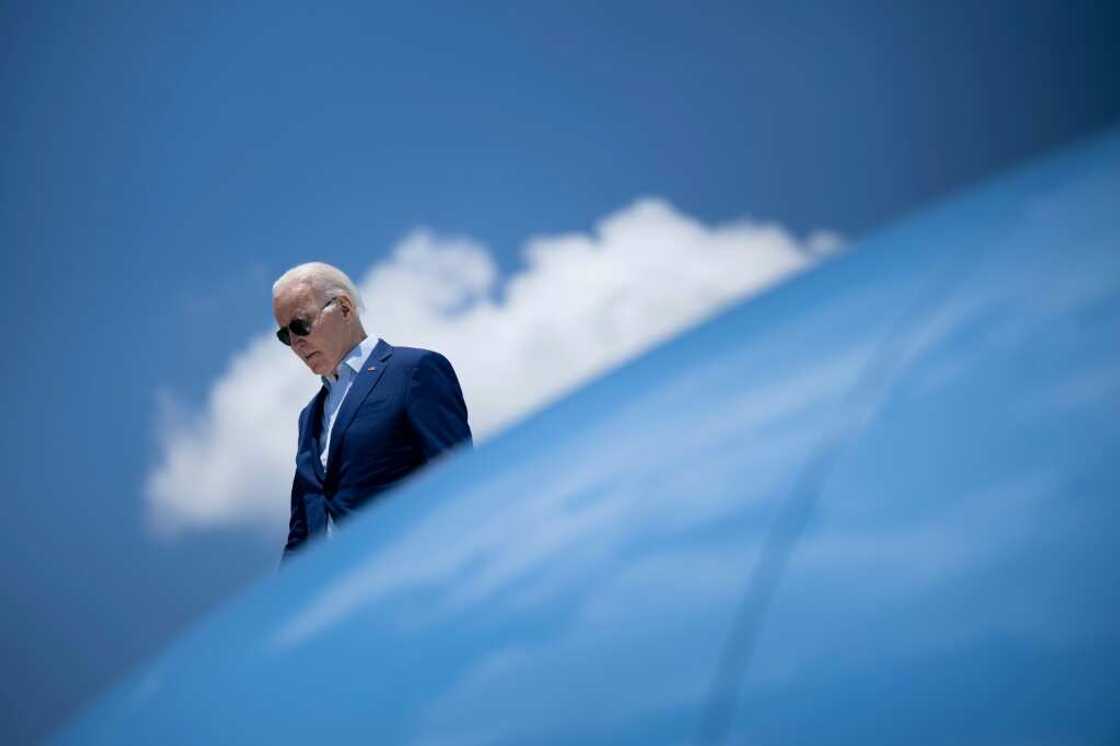Biden says US military opposes Pelosi trip to Taiwan

Source: AFP
PAY ATTENTION: Click “See First” under the “Following” tab to see Legit.ng News on your Facebook News Feed!
A potential visit to Taiwan by House Speaker Nancy Pelosi is generating concern in Washington, with President Joe Biden saying the US military was opposed amid fears of inflaming tensions with China.
Pelosi, who is second in line to the presidency after the vice president, has not commented on any plans to visit Taiwan but reports that she is considering a trip have already outraged Beijing, which claims the island.
Asked late Wednesday if Pelosi should travel to Taiwan, Biden told reporters: "The military thinks it's not a good idea right now, but I don't know what the status of it is."
He also is expected to hold virtual talks in the next 10 days with Chinese President Xi Jinping that will likely focus on wide-ranging tensions between the world's two largest economies, and on Russia's invasion of Ukraine.
The Biden administration has been stepping up support for Taiwan but the United States is careful not to send high-level delegations to Taipei, instead dispatching lower-level officials in charge of trade or other less controversial areas, or former officials.
Newt Gingrich, then speaker of the House of Representatives and an outspoken supporter of Taiwan, visited the island in 1997 but China at that time was seen as less capable of invading the island.
PAY ATTENTION: Share your outstanding story with our editors! Please reach us through info@corp.legit.ng!

Source: AFP
China has been stepping up air movements near Taiwan this year. CIA chief Bill Burns said at the Aspen Security Forum on Wednesday that Beijing appeared determined to use force in Taiwan, with risks of action growing later this decade.
China considers self-ruling Taiwan a province awaiting reunification. The mainland's defeated nationalists fled to Taiwan in 1949 after losing the civil war but the island has since transformed into a flourishing democracy and technological power.
China warnings
Washington switched recognition from Taipei to Beijing in 1979 but Congress has ever since required the administration to provide weapons to the island for its self-defense.
Biden said in May that the United States was ready to use force to defend Taiwan from a Chinese attack, appearing to shed the long-held US ambiguity on whether it would engage militarily, although the White House quickly walked his comments back.

Source: AFP
Diplomats say the Biden administration is concerned that a visit by Pelosi -- a member of Biden's Democratic Party -- would be seen by China as part of an orchestrated administration campaign, even though Congress is a co-equal branch of government under the US Constitution with lawmakers free to travel as they please.
Chinese foreign ministry spokesman Zhao Lijian said earlier this week that Congress "is an integral part of the US government."
"If Pelosi visits Taiwan, this would severely violate the One-China principle," he said.
China's ambassador to Washington, Qin Gang, told the Aspen Security Forum on Wednesday that the One-China policy of the US "is under threat."
"The United States is hollowing out and blurring up the One-China policy. It is substantially uplifting the official links with Taiwan by sending more officials to the island," he said.
He said China still preferred "peaceful reunification" but that Washington needed to "constrain" pro-independence forces in Taiwan, where President Tsai Ing-wen has asserted the island's separate identity.
Taiwan has been a rallying cry for conservative Republicans but enjoys bipartisan support in Washington.
Pelosi has long been an outspoken critic of Beijing, in 1991 outraging her hosts by unfurling a banner in Tiananmen Square in memory of pro-democracy demonstrators killed there two years earlier.
Source: AFP




